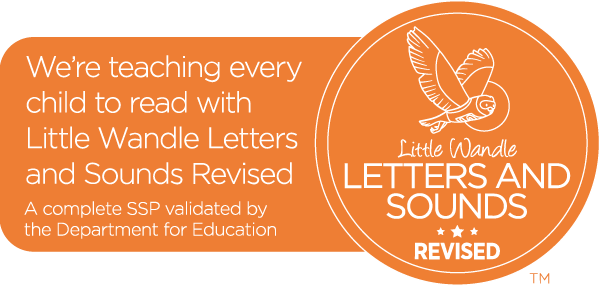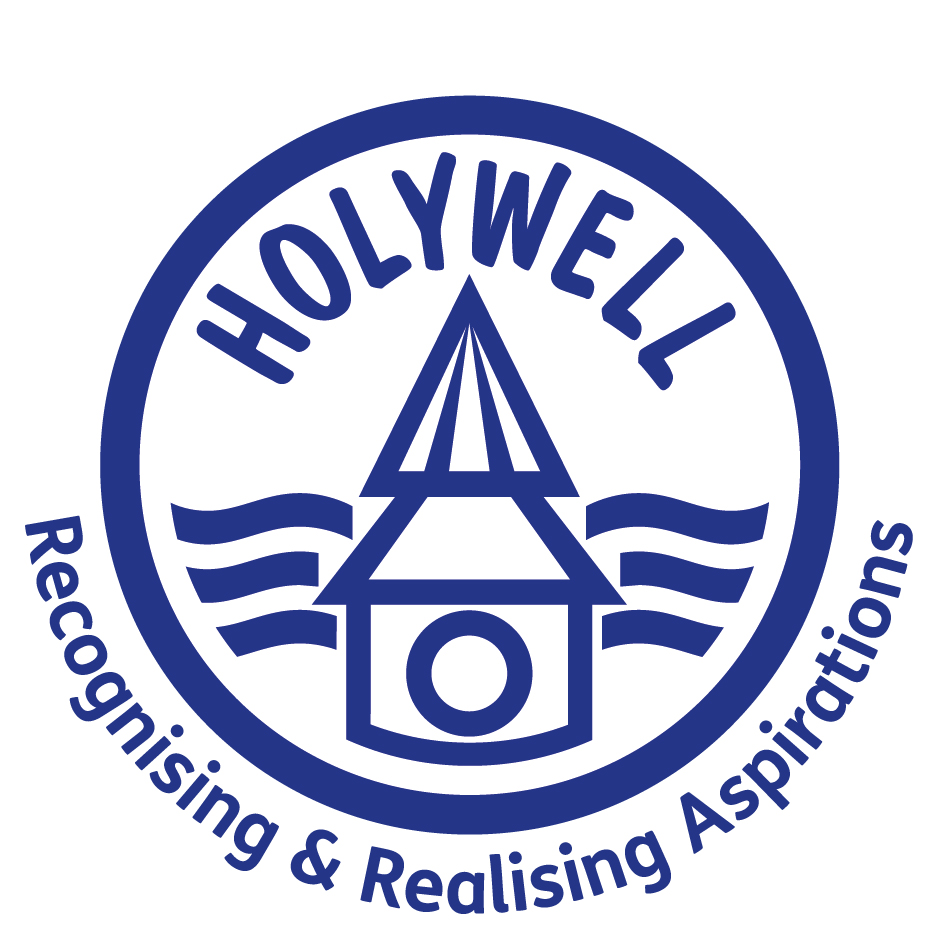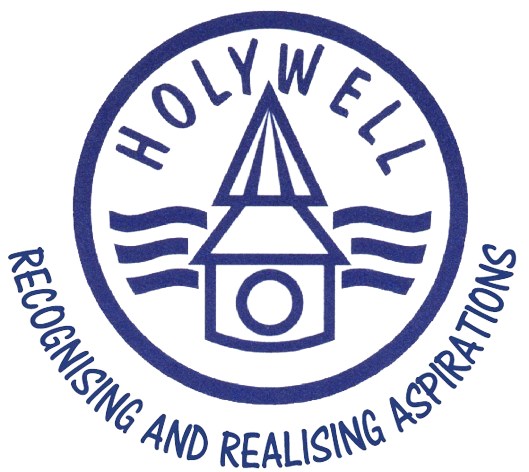Our Curriculum

At Holywell Primary we believe in the concept of lifelong learning and in the idea that both adults and pupils learn new things together. At Holywell Primary learning is defined as: The process of acquiring the essential Knowledge, Attitudes, Skills and Habits required for deep understanding.
We believe learning should be engaging, creative and personalised and a rewarding and enjoyable experience for all. Teaching and learning at Holywell is focused on developing rich dialogue between teachers and pupils, pupils and their peers and within the wider school community. We understand everyone learns in different ways and seek to plan lessons and topics which will enable children to be active participants in their learning.
Through a knowledge and skills-based approach to learning we encourage children to take responsibility for their own learning, to be involved as far as possible in reviewing what strategies and tools help to learn and how well they have mastered their learning. We achieve this by developing a curriculum that offers children the opportunity to develop key thinking skills and learning habits on a daily basis.
Learning at Holywell
We believe people learn best in different ways. At Holywell, we provide a rich and varied learning environment which allows all pupils to develop their skills and abilities to their full potential.
Through our teaching, we aim to:
- enable pupils to become confident, resourceful, enquiring and independent learners;
- foster pupils self-esteem and help them to build positive relationships with other people;
- develop pupils self-respect, encourage them to understand the ideas, attitudes and values of others, and teach them to respect other people's feelings;
- show respect for a diverse range of cultures and, in so doing, to promote positive attitudes towards other people;
- enable pupils to understand their community, and help them feel valued as part of it;
- help pupils grow into reliable, independent and positive citizens.
Provision is designed to advance understanding and knowledge gradually through a key stage. Lessons are not an event in themselves. They are part of the process of learning and therefore we do not expect pupils to complete learning within a lesson. Many lessons will carry on over several days or even weeks until a pupil is showing the required degree of understanding.
Key learning objectives define outcomes and focus teaching. They help to clarify, organise and prioritise learning. The key learning is one of the measurable stages a learner will go through as part of the process of learning in order to advance and deepen their understanding.
Planning our curriculum
Our learning starts with the aims and objectives of the National Curriculum and we create learning opportunities by teaching through thematic topics. Our curriculum is designed to enable all pupils to experience a wide breadth of study and have, by the end of each key stage, the knowledge and cultural capital they need to succeed in the next stage of their learning, and beyond.
We know learning is a change to Long term memory and progress is an ongoing process of knowing more and remembering more. Through the effective delivery of a coherently planned and sequenced curriculum which shows opportunities to deliberately practise activities that over time embed and deepen knowledge, our children will be able to make connections between topics and build a conceptual understanding.
Pillars & Threads
To ensure children know and remember more we have designed a curriculum which explicitly teaches the pillars of substantive knowledge through a range of subject-specific disciplinary knowledge threads. These are evident in our subject pages.
You can find out more about the National Curriculum HERE
If you wish to find out more about the Holywell Curriculum, please speak with our Assistant Head, Mr Ball.
HOW WE TEACH PHONICS AND EARLY READING

At Holywell we believe that for all our children to become fluent readers and writers, phonics must be taught through a systematic and structured phonics programme.
We use the Little Wandle Letters and Sounds Revised to plan and provide daily engaging phonics lessons. In phonics, we teach children that the letters of the alphabet represent a different sound, that these can be used in a variety of combinations and are put together to make words. The children learn to recognise all of the different sounds and combinations they might see when they are reading or writing.
Our phonics teaching starts in Reception and follows a very specific sequence that allows our children to build on their previous phonic knowledge and master specific phonic strategies as they move through school.
How we teach phonics
- In Reception and Year 1, children follow the progression within Little Wandle Letters and Sounds Revised programme. Phonics is taught daily and there is a review session on a Friday
- Phonics starts in Reception in week 2 to ensure the children make a strong start
- By the end of Reception, children will have been taught up to the end of phase 4
- By the end of Year 1, children will have been taught up to the end of phase 5
- Reception lessons start at 10 minutes, with daily additional oral blending – increasing to 30 minutes as soon as possible
- Year 1 lessons are 30 minutes long
- In Year 2 - Year 3, phonic lessons are taught daily to children where appropriate – following the model of Little Wandle but plugging specific gaps identified through assessment
- In Year 2 – Year 6 there are planned phonic ‘catch-up’ sessions following a set model to address specific reading/writing gaps. These are short, sharp sessions lasting 10 minutes in length and taking place at least three times a week
Reading practice sessions
- Children across Reception, Year 1, Year 2 (and beyond if appropriate) apply their phonics knowledge by using a fully matched decodable reader in a small group reading practice session
- These sessions are 15 minutes long and happen three times a week. There are approximately 6 children in a group
- The sessions follow the model set out in Little Wandle Letters and Sounds Revised
- The children then take the same book home at the end of the week to ensure success is shared with the family
- In Reception these sessions start in week 4 for most children. Children who are not decoding, do a little blending lesson, following the model set out in Little Wandle Letters and Sound Revised
- Books are given out when the child is decoding words independently
- We use a mixture of physical Bug Club and Big Cat fully decodable books and online Collins ebooks. Parents and Carers receive their log in details for this within the first few weeks of their child starting school
How do we assess phonic knowledge?
- In Reception and Year 1, at the end of each week there is a review session which recaps the learning. There are also whole review weeks (pre-planned and bespoke review weeks to address gaps identified by the class teacher’s ongoing formative assessment)
- Children identified in Reception and Year 1 as in danger of falling behind are immediately identified and daily ‘keep up’ sessions are put in place – sessions follow the Little Wandle Letters and Sounds Revised programme
- In Reception and Year 1, the children are assessed at the end of every half term using the Little Wandle Letters and Sounds Revised assessment tracker
- The children in Year 1 sit the Phonics Screening Check in the Summer term
- Children who do not pass the Phonics Screening Check in Year 1, will re-sit this in Year 2
- Children who are in Year 2 – Year 6 and need ‘catch up’ sessions are assessed through teacher’s ongoing formative assessment as well as half termly summative assessments
If you are a parent and would like more information about how to support your child with phonics at home, please follow this link to find the Reception and Year 1 overview as well as videos of the sound pronunciations, letter formation sheets and other helpful resources.
https://www.littlewandlelettersandsounds.org.uk/resources/for-parents/

